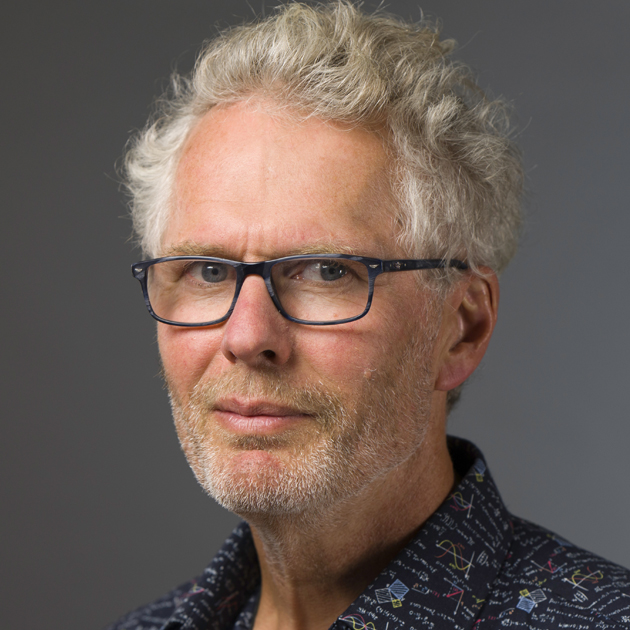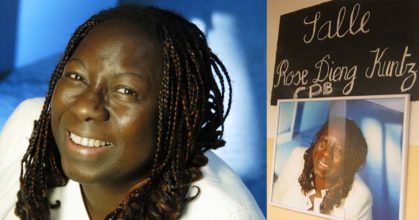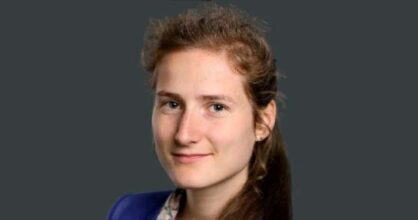Site web personnelPersonal Web Site
Équipe de recherche :Research Team:
Data, Intelligence and Graphs (DIG)Data, Intelligence and Graphs (DIG)
Laboratoire :Laboratory:
Laboratoire Traitement et Communication de l'Information (LTCI)Information Processing and Communication Laboratory (LTCI)
Département :Department:
Informatique et Réseaux (Infres)Computer Sciences and Networks (Infres)
Jean-Louis Dessalles is a professor emeritus at Télécom Paris in the LTCI laboratory and a member of the DIG research team. He uses artificial intelligence to model and simulate the relevance that characterizes spontaneous human communication.
For a decade, he has been developing the Theory of Simplicity, which serves as a basis for modeling narrative interest and argumentative relevance. He also works on the simulation of evolutionary processes and on the fundamental question of the origin of human language, considered as a social signalling game. He is the author of several books, including Why We Talk (Oxford University Press. 2007), La pertinence et ses origines cognitives (Hermes), Le fil de la vie (Odile Jacob, 2016), Des intelligences TRÈS artificielles (Odile Jacob, 2019).
Home Page: https://www.dessalles.fr
Academic background
Admitted to the École Polytechnique (Paris) in 1976, he graduated from Télécom Paris (then École Nationale Supérieure des Télécommunications) in 1981, received his PhD in 1993 and was awarded an HDR (habilitation to direct research) in 2008 at the Université Paris-Sorbonne.
Jean-Louis Dessalles’s research focuses on the fundamental principles underlying the faculty of language and its biological origins. In particular, he studies narrative interest and argumentative relevance, as well as the conditions that make honest communication between potentially selfish agents possible, in order to explain the emergence and evolution of language.
Teaching
Télécom Paris – Courses in Artificial Intelligence and Cognitive Modelling
SD206 Logic and knowledge representation (LKR)
SD213 Cognitive approach to Natural Language Processing (CANLP)
Athens TPT09 Social Emergence in Complex Systems (SECS)
Athens TPT37 From Complexity to Intelligence (FCI)
Selected bibliography
Des intelligences TRÈS artificielles. Paris: Odile Jacob. 2019. (ISBN 978-2738147141)
Le Fil de la vie. La face immatérielle du vivant (avec Pierre-Henri Gouyon et Cédric Gaucherel). Paris: Odile Jacob. 2016. (ISBN 978-2-7381-3395-3)
La pertinence et ses origines cognitives, Nouvelles théories. Paris: Hermes-sciences. (ISBN 978-2746220874)
Why We Talk, The evolutionary origins of language. Oxford, UK: Oxford University Press. 2007. (ISBN 978-0-19-927623-3)
« Language: The missing selection pressure ». ArXiv, 1712.050. 2017 (DOI. 10.13140/RG.2.2.11892.04489)
« Optimal investment in social signals« . Evolution 68(6). 2014 (DOI. 10.1111/evo.12378)
« Algorithmic simplicity and relevance« . In D. L. Dowe (Ed.), Algorithmic probability and friends – LNAI 7070, 119-130. Berlin, D: Springer Verlag. 2013 (DOI. 10.1007/978-3-642-44958-1_9).
Home Page: https://www.dessalles.fr

Rose Dieng-Kuntz, pionnière et télécommienne emblématique
Graduates — 08/03/2025Diplômée de X-Télécom Paris, c’était une télécommienne emblématique par la force symbolique de son parcours, [...]
La lettre du LTCI (2023 #2)
PhD, Faculty Members — 17/07/2023Prix et distinctions, dont Sterenn Guerrier lauréate du Prix de Thèse IP Paris, panorama annuel de la recherche, journée de la Chaire [...]
L'IA n'est pas encore... intelligente (Les Échos)
Data Science & AI, Faculty Members — 05/06/2023Jean-Louis Dessalles : La capacité à s'étonner est une différence fondamentale entre l'humain et l'IA.
«Il existe des limites intrinsèques aux techniques d'IA actuelles»
Data Science & AI, Faculty Members — 19/07/2022Jean-Louis Dessalles se passionne pour une approche scientifique de l'intelligence [...]
Is there intelligence in artificial intelligence?
Data Science & AI, Faculty Members — 18/05/2021Jean-Louis Dessalles: Are there any human mental abilities that remain strictly out of reach for artificial [...]





